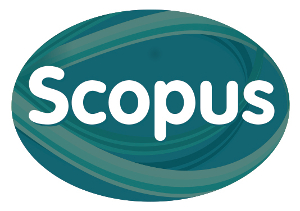Identitas Poskolonialisme Pesantren Modern
 Abstract views: 820
,
Abstract views: 820
,
 PDF (Bahasa Indonesia) downloads: 1040
PDF (Bahasa Indonesia) downloads: 1040
Abstract
Abstract: In post-colonial, “modern” is interpreted as novelty, newedly technology, and it carries argument of perfection by colonists who came to the inlanders’ land it requires that the colonists to be changed, it also preaches that the west is the most perfect and represents a brightness of the future. Pesantren “modern” has brought a new identical that is puritanism and leave the moderate vision brought by pesantren salaf. However, there is a pesantren uses “modern” still preserves the old traditions of pesantren. Is a Al-Islam modern boarding school (pesantren) in the Nganjuk district, which shows that modern pesantren has a hybrid culture in the form of pesantren tradition that is maintained until today. Using the mimicry framework of Homi Bhabha this study brings the result to Modernization is not fully change pesantren-style in modern pesantren Al-Islam Nganjuk by ‘mimicry’ western modernization but not leaving the old tradition of salaf pesantren.
ملخص: في دراسات بعد الاستعمار، يتم تفسير الكلمة "الحديثة" على أنها مبتكرة ، وكلها متطورة وفي نفس الوقت تجلب الحجة المثالية التي تم تلقينها من قبل الغزاة الذين جاءوا من الغرب إلى بلاد المستعمر. لا يقتصر الأمر على جعل عقيدة "الالتزام" تقتضي أن يتغير هؤلاء الغزاة أيضًا وأن الغرب هو الأكثر مثالي ويمثل سطوعًا في المستقبل. إن المدارس الإسلامية التي تحمل كلمة "حديث" في دراسة قد جلبت خطابًا إسلاميًا جديدًا متطابقًا مع التزمت، وتركت نموذجًا للاعتدال تم تنفيذه من قبل السلفيات التقليدية. بالإضافة إلى ذاك، هناك معهد يستخدم "الحديثة" ولكن لا يزال يحافظ التقليد القديم للمعهد السلف. وهو معهد الإسلام في نجانجوك، مما يدل على أن المدارس الإسلامية الحديثة لها ثقافة هجين في شكل مدارس داخلية إسلامية يتم الحفاظ عليها اليوم. باستخدام إطار "ميميتشي" هومي بهابها هذا ينتج البحث دعاة الكمال على الطريقة الغربية تقع على الفور في أيدي معهد الإسلام من خلال تخصيص التحديث الغربي ولكن لا تترك التقاليد القديمة.
Copyright (c) 2019 Cendekia: Jurnal Kependidikan Dan Kemasyarakatan

This work is licensed under a Creative Commons Attribution-NonCommercial-ShareAlike 4.0 International License.
Copyright & License
Please find the rights and licenses in Cendekia: Jurnal Kependidikan dan Kemasyarakatan. By submitting the article/manuscript, the author(s) agree with this policy. No specific document sign-off is required.
1. License
The non-commercial use of the article will be governed by the Creative Commons Attribution license as currently displayed on the Creative Commons Attribution-NonCommercial 4.0 International License.
2. Author(s)' Warranties
The author warrants that the article is original, written by the stated author(s), has not been published before, contains no unlawful statements, does not infringe the rights of others, is subject to copyright that is vested exclusively in the author and free of any third party rights, and that any necessary written permissions to quote from other sources have been obtained by the author(s).
3. User/Public Rights
The spirit of Cendekia: Jurnal Kependidikan dan Kemasyarakatan is to disseminate articles published as free as possible. Under the Creative Commons license, Cendekia: Jurnal Kependidikan dan Kemasyarakatan permits users to copy, distribute, display, and perform the work for non-commercial purposes. Users will also need to attribute authors and Cendekia: Jurnal Kependidikan dan Kemasyarakatan on distributing works in the journal and other media of publications. Unless otherwise stated, the authors are public entities as soon as their articles got published.
4. Rights of Authors
Authors retain all their rights to the published works, such as (but not limited to) the following rights;
- Copyright and other proprietary rights relating to the article, such as patent rights,
- The right to use the substance of the article in own future works, including lectures and books,
- The right to reproduce the article for own purposes,
- The right to self-archive the article,
- The right to enter into separate, additional contractual arrangements for the non-exclusive distribution of the article's published version (e.g., post it to an institutional repository or publish it in a book), with an acknowledgment of its initial publication in this journal (Cendekia: Jurnal Kependidikan dan Kemasyarakatan).
5. Co-Authorship
If the article was jointly prepared by more than one author, any author submitting the manuscript warrants that he/she has been authorized by all co-authors to be agreed on this copyright and license notice (agreement) on their behalf and agrees to inform his/her co-authors of the terms of this policy. Cendekia: Jurnal Kependidikan dan Kemasyarakatan will not be held liable for anything arising due to the author(s) internal dispute. Cendekia: Jurnal Kependidikan dan Kemasyarakatan will only communicate with the corresponding author.
6. Royalties
Being an open accessed journal and disseminating articles for free under the Creative Commons license term mentioned, the author(s) are aware that Cendekia: Jurnal Kependidikan dan Kemasyarakatan entitles the author(s) to no royalties or other fees.
7. Miscellaneous
Cendekia: Jurnal Kependidikan dan Kemasyarakatan will publish the article (or have it published) in the journal if the article's editorial process is completed. The editors of Cendekia: Jurnal Kependidikan dan Kemasyarakatan may modify the paper to a style of punctuation, spelling, capitalization, referencing, and usage that deems appropriate. The author acknowledges that the article may be published so that it will be publicly accessible, and such access will be free of charge for the readers, as mentioned in point 3.








